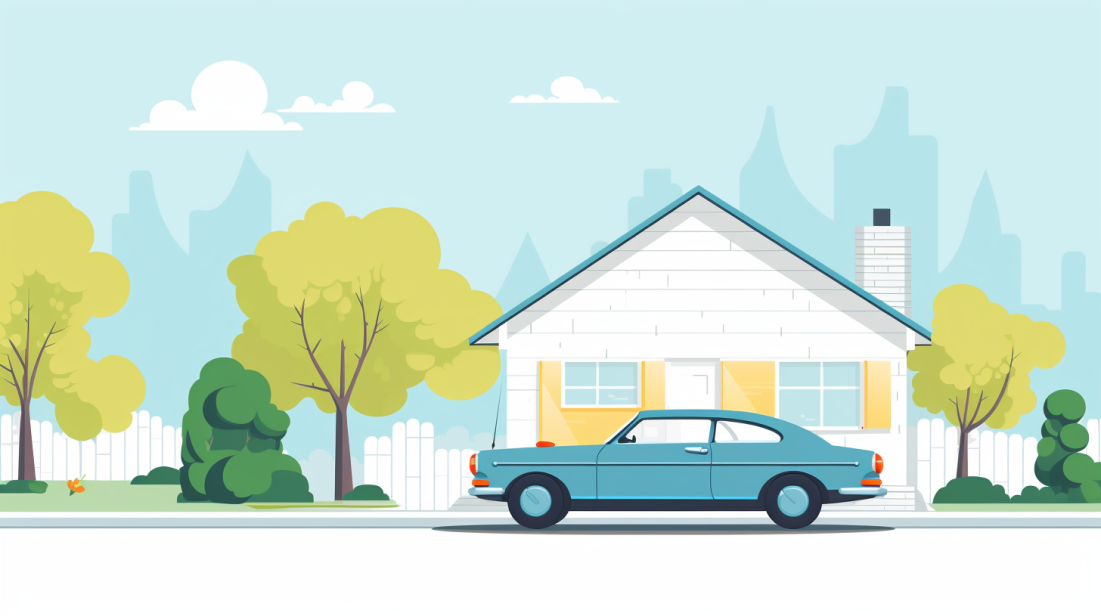What Happens To Insurance After You Die?

Key Takeaways
- After death, life insurance money goes to the chosen beneficiary. They must file a claim to get it.
- The car insurance after death can be closed with proof of death and right papers. Open claims still go on until solved.
- A house stays insured when the owner dies for a short time. The cover name needs changing or they may cancel the policy.
- If you get a home from someone’s will, inform your insurer fast! Set new coverage based on what works best for you.
What Happens to Life Insurance After Death?
 When you have a life insurance policy and pass away, it becomes time for your chosen beneficiary to file a claim. After fulfilling necessary documentation, including presenting the death certificate, the insurance company reviews the claim. Upon approval, the benefits are paid out to beneficiaries. However, there could be delays in payout due to any potential contestability by the insurer or unclear policy terms. Beneficiaries can choose from various payout options such as lump-sum payments or installments based on their financial needs and advice from estate planning attorneys. It’s crucial to understand these aspects of life insurance policies for seamless transactions during emotionally taxing times like dealing with a loved one’s demise.
When you have a life insurance policy and pass away, it becomes time for your chosen beneficiary to file a claim. After fulfilling necessary documentation, including presenting the death certificate, the insurance company reviews the claim. Upon approval, the benefits are paid out to beneficiaries. However, there could be delays in payout due to any potential contestability by the insurer or unclear policy terms. Beneficiaries can choose from various payout options such as lump-sum payments or installments based on their financial needs and advice from estate planning attorneys. It’s crucial to understand these aspects of life insurance policies for seamless transactions during emotionally taxing times like dealing with a loved one’s demise.Choosing a Life Insurance Beneficiary
Picking who gets your life insurance payout is a big choice. This person is called a beneficiary. You can choose anyone you want, like a spouse, child or even an organization that does good things. You should think long and hard about this because it’s the last gift you’ll give them when you’re gone. It’s very important to be sure about who you pick as your beneficiary.Filing a Claim
Here is what you need to do to file a claim:- First, get in touch with the insurance company.
- Inform them about the policyholder’s death.
- Give them the key details of the policy.
- You must show proof of death, like a death certificate or an executor of estate form.
- Wait for the insurance company to process your claim.
- They will confirm if they accept your claim.
- Also, know that it may take some time before you get the claim payout.
When Benefits Are Paid
Death benefits are paid after a claim is made. This happens when the person named as the beneficiary fills out a form from the life insurance company. It’s also important to send in a copy of the death certificate. Once this is done, most companies pay within 30 days. If there are delays, they usually come from issues with paperwork or questions about how the person died.Payout Delays
Sometimes, life insurance payouts take a while. This can happen for many reasons. A common one is that all the needed paperwork was not given to the insurance company. The company might also need time to check if the policy was active when the person died. Another reason could be a death within two years of starting the policy. Here, it’s normal for an insurance firm to look into the case more heavily for fraud protection – this rule is called contestability period in insurance terms. These things can make payout slower but keep talking with your insurer to know what’s up and when you might get paid.Payout Options
Life insurance companies offer several ways to get your money after a death. One way is the lump-sum payment. It is a one-time payout of all the funds. Annuities provide regular payments over time, based on an agreed schedule. Installment payments are another option where insurers give the money in parts for set times. With retained asset accounts, beneficiaries can draw from their account as needed, like having a personal bank. Different life insurance policies have different payout options and rules that guide them.What Happens to Car Insurance When the Policyholder Dies?
 When the policyholder of a car insurance passes away, there are several necessary steps that must be taken to close or transfer their policy. If the deceased was your spouse, you’ll need to contact the insurance company and provide them with documentation, including a death certificate, to cancel their policy. In cases where the person is not a spouse but maybe a friend or family member, similar documentation will be needed along with proof that you are authorized as an executor of estate. If there were open claims at the time of death, these would typically continue until resolved; however, any claim payout may go towards settling remaining financial obligations or could be paid directly to beneficiaries depending on individual case details.
When the policyholder of a car insurance passes away, there are several necessary steps that must be taken to close or transfer their policy. If the deceased was your spouse, you’ll need to contact the insurance company and provide them with documentation, including a death certificate, to cancel their policy. In cases where the person is not a spouse but maybe a friend or family member, similar documentation will be needed along with proof that you are authorized as an executor of estate. If there were open claims at the time of death, these would typically continue until resolved; however, any claim payout may go towards settling remaining financial obligations or could be paid directly to beneficiaries depending on individual case details.Closing a Car Insurance Policy for a Spouse
Here’s how to close a car insurance policy for a spouse.Closing a Car Insurance Policy for Someone Other than a Spouse
When we lose someone dear to us, there are many things to take care of. One aspect often overlooked is their car insurance policy. Here’s how you can close a car insurance policy for someone other than a spouse:- Start the process by getting in touch with the insurance company. Let them know about the death of the policyholder.
- Have all the required documents ready for this process. These include the death certificate and paperwork from the executor of estate.
- Provide proof that you’re an authorized person to make changes to the car insurance policy. This may mean sharing your role as an executor or legal representative.
- Know that it might take more time than expected because of some checks. The insurance company has to ensure that you have a legal right to cancel this policy.
- Be prepared for questions about any open claims under this car insurance policy.
- Be patient and keep lines of communication open with your deceased loved one’s insurer as they finalize matters on their end.
What Happens to Open Claims if a Car Insurance Policyholder Dies
Open claims may stay active if a car insurance policyholder dies. The insurance company does not stop the claim process. They keep going with it even after the policyholder’s death. The payout of these open claims goes to the estate of the deceased person. Sometimes, there may be a delay in settling open claims until an executor for the estate gets picked. As an executor or family member, you should send a copy of the death certificate to the insurance company right away. You can ask your lawyer or check local laws about this step.What Happens to Homeowners Insurance When Someone Dies?
When a homeowner dies, their insurance policy doesn’t immediately dissolve. As the new owner or executor of the estate, it’s crucial to understand how this transition occurs and what steps need to be taken. Timing matters alongside other factors like if the house is still occupied or not, as these can impact your coverage options. Navigating through probate processes does require due diligence as any unpaid premiums may impact the transfer of home insurance after death. Inheriting a home carries its own set of responsibilities – understanding your insurance policies will help you manage them effectively.Is a House Still Insured if the Owner Dies?
 Yes, a house stays insured even if the owner dies. But this is not for a long time. The insurance firm must learn about the death soon. They may stop the policy if they don’t hear from you in time. If you get a house from someone who died, call the insurer fast! This way, they can move the policy to your name or start a new one for you. You need to choose what type of cover you want for your new home too.
Yes, a house stays insured even if the owner dies. But this is not for a long time. The insurance firm must learn about the death soon. They may stop the policy if they don’t hear from you in time. If you get a house from someone who died, call the insurer fast! This way, they can move the policy to your name or start a new one for you. You need to choose what type of cover you want for your new home too.Transfer of Homeowners Insurance After the Owner Dies
Moving homeowners insurance to a new owner is not hard. Here are the steps:- First, give the death certificate to the insurance company. The company needs this as proof that the owner has died.
- Now, talk to the insurance company about moving the policy. They will let you know if it can be moved to your name or if you need a new one.
- If you are the spouse of the owner who died, or your name is also on the current policy, it can stay in place until it ends. This works in most cases.
- Always speak with an expert before making any changes. They can help make sure you do everything right.
- It is very important to tell the insurance company when someone dies on time. If not, they may cancel the policy.
Coverage Options and Probate Process
The probate process can make things a bit tricky. It’s the time when a court settles the estate of someone who has died. During this time, there are three ways to deal with homeowners insurance. You can keep the policy in the name of the person who has died. Another way is to change it into your own name if you’re now owning the home. The third option is getting short-term house insurance if you plan on selling. If no one lives in the house for quite some time, empty home coverage may be needed as well. Always call your insurer right after you get a house from someone else’s will.Tips for Those Who Inherit a Home
Getting a home after someone dies can bring lots of duties. Here are some tips to make it less hard:- Reach out to the insurance company soon after you get the house. They need to know about the owner’s death within 30 days.
- Ask about your options for coverage. This could be a short-term policy if you plan to sell the house soon.
- Look into vacant home insurance if no one will live in the house right away. Empty houses have more risks, so they need special coverage.
- Remember, the old insurance plan will not move to you on its own. It is your job to set up new coverage for the house.
- Make sure you understand what your new insurance covers and how much it costs before you sign anything.
Does Liability Insurance Cover any Costs After Death?
Liability insurance coverage explained: While liability insurance primarily covers legal expenses and damages during one’s lifetime, it does not extend to costs incurred after death. Once an individual passes away, it is typically the responsibility of their estate or next of kin to handle funeral expenses, outstanding debts, and other post-death costs. Liability insurance is designed to protect the policyholder and their assets while alive, ensuring financial security against potential lawsuits and claims.
Conclusion
 Insurance is important, even after we die. The right steps can help make sure the benefits go where they should. Knowing what happens to insurance when you die can ease stress for loved ones during a tough time. Make sure your policies are in order so that it all goes smoothly when needed.
Insurance is important, even after we die. The right steps can help make sure the benefits go where they should. Knowing what happens to insurance when you die can ease stress for loved ones during a tough time. Make sure your policies are in order so that it all goes smoothly when needed.





